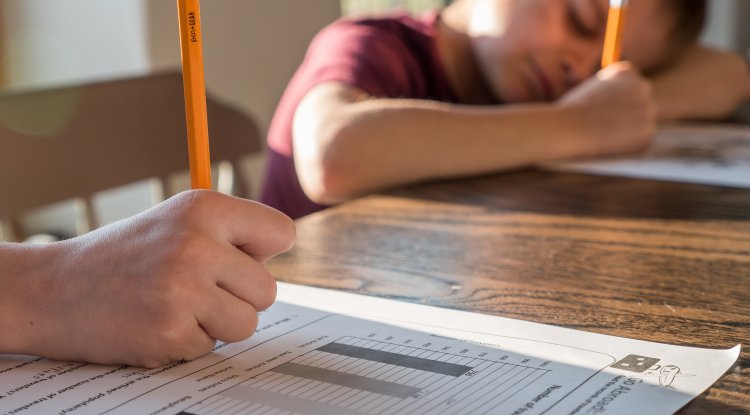Tips for Educators
Six Effective Ways To Help Students With Dyslexia
- Jul 14, 2022
- 0
- 1964

Dyslexia affects a child’s ability to recognize and manipulate the sounds used in spoken language. Kids with dyslexia have a hard time decoding new words or breaking them down into manageable chunks to sound them out. This causes difficulty with reading, writing and spelling. According to the Dyslexia Centre of UTAH, 20% of school-aged children in the US are suffering from dyslexia.
Incorporating certain classroom strategies students with dyslexia learn to read and thrive academically. Here are six tips to work with students who are dyslexic -
1. Multi-Sensory Learning
Multi-sensory activities help dyslexic children absorb and process information in a retainable manner. This kind of learning uses senses like touch and movement alongside sight and hearing. Examples of multi-sensory activities for the classroom include:
- Writing words and sentences with tactile materials like glitter glue, sand, pasta and LEGO
- Physical activities to practice spelling like hopscotch or jump-rope – the children spell out words when they jump to each square or over the rope. Students can work in pairs and take turns to dictate words and spell them.
2. Assistive Technology & Tools
Assistive technology offers dyslexic students a way to overcome some of the issues they may encounter, such as slow note-taking and illegible handwriting. Examples of assistive tools include audiobooks, text-to-speech apps, dyslexic-friendly web browsers and spell checkers among others. These applications help students with dyslexia to sharpen their skills in reading, writing, touch-typing and math skills.
3. The Art Of Visualisation
If a child struggles to read, chances are their entire focus is on trying to sound out words. When decoding becomes a child's focus, the idea that words carry meaning will escape them. They assume reading means calling out words. It is important to teach dyslexic students to pause after every few lines to make a mental picture of what the words mean. Learning to visualise might seem slow at first. But as you continue this practice, visualisation will become an automatic process for them.

4. Areas Of Interest
Encourage dyslexic students to focus on activities they enjoy and feel good at, whether it is music or sports or any other activity that builds their confidence. Let them know that dyslexia is not a marker of intelligence. It can also be helpful to talk about famous personalities — like Albert Einstein, Whoopi Goldberg and Steven Spielberg — who were diagnosed with dyslexia.
5. Efforts & Ideas Count
Dyslexic learners may be less skilled than their peers at spelling and grammar. However, if their thought process and creativity shine through the errors, it’s clear they’ve made an effort. Appreciate your learners for their attempts and offer constructive suggestions for improvement. Remember there's nothing better for a student than to receive supportive feedback from the teacher - it helps them feel appreciated and understood.
6. Work Together With Parents
Meet with dyslexic students’ parents regularly to discuss how their child is doing and the strategies you’ve applied in the classroom. The child’s parents can also update you on what methods they’ve been using at home and what’s been successful for them so far. No two dyslexic children are alike. By sharing knowledge about ongoing progress, both the parties can work together to find learning methods that successfully speed up a dyslexic student’s learning.
Dyslexia can result in frustration, embarrassment, avoidance and low self-esteem as a result of difficulties performing tasks that seem to come naturally to others. Adopt these six strategies to help your dyslexic students develop resilience that's necessary to overcome this learning disorder.
Add Comment
Related Blogs

Tips for Educators
A Quick Guide To Understanding Mastery-Based Learning
- James Coop...
- Jun 20, 2022
- 0
- 1738
Popular Blogs

Tips for Educators
3 Tips To Apply Classical Conditioning In Classrooms
- Natasha Di...
- Apr 25, 2022
- 0
- 21976

Understanding Concepts
4 Reasons Why Skill-Based Learning Is Important For Students
- James Coop...
- Mar 14, 2022
- 0
- 11299

For Parents
Everything You Need To Know About STEAM Education As A Parent
- James Coop...
- Mar 1, 2022
- 0
- 11246












